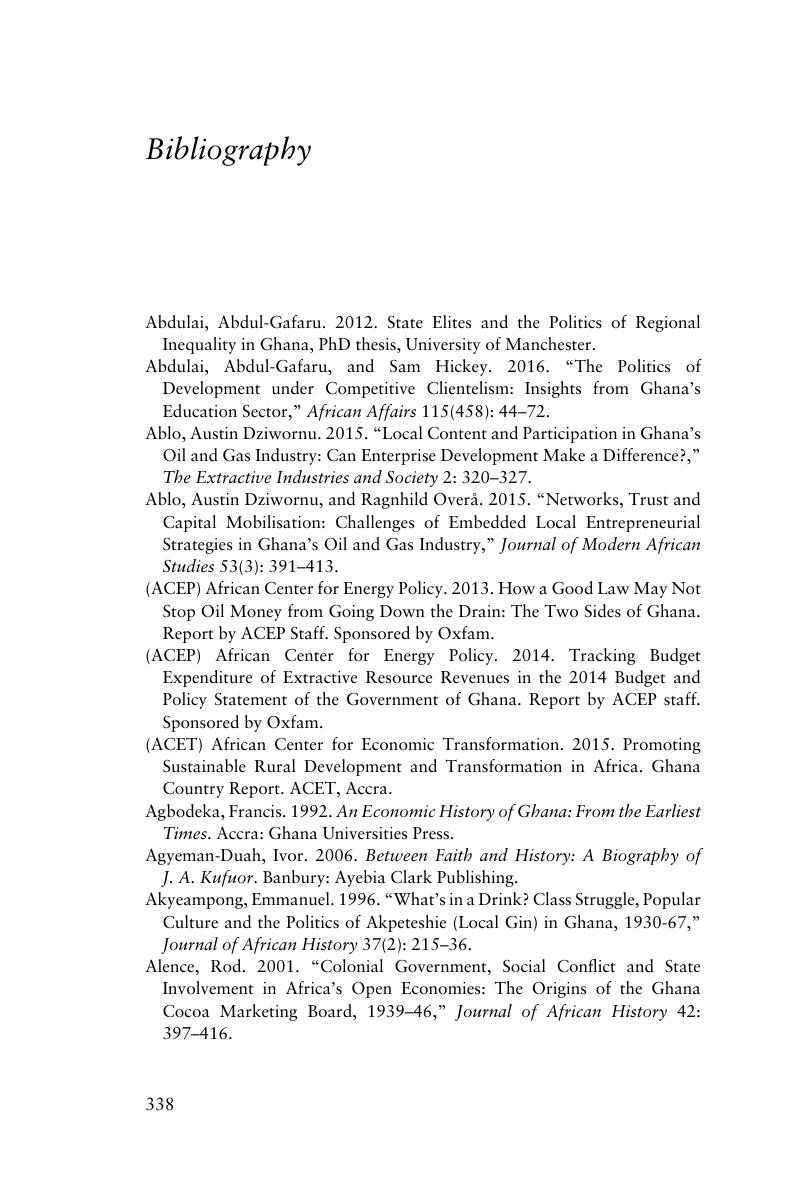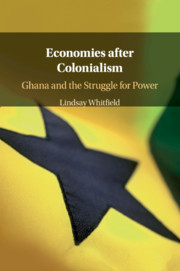Book contents
- Economies after Colonialism
- Economies after Colonialism
- Copyright page
- Dedication
- Contents
- Figures
- Tables
- Acknowledgments
- Map of Ghana
- Introduction: The Ghanaian Economy, Fragile Still
- 1 Ghanaian Political Economy and the Politics of Industrial Policy
- 2 Origins of Competitive Clientelism and Weak Domestic Capitalists
- 3 Return to Competitive Clientelism in the Fourth Republic
- 4 Economic Growth, But Return to the Colonial Trading Economy
- 5 Challenges to Diversifying Exports
- 6 Challenges to Modernizing Agro-Processing
- 7 NPP Government and the Not So “Golden Age of Business”
- 8 NDC II Government and Managing the New Oil Wealth
- Conclusion: Can Industrial Policy Work in Ghana?
- Book part
- Bibliography
- Index
- References
Bibliography
Published online by Cambridge University Press: 15 June 2018
- Economies after Colonialism
- Economies after Colonialism
- Copyright page
- Dedication
- Contents
- Figures
- Tables
- Acknowledgments
- Map of Ghana
- Introduction: The Ghanaian Economy, Fragile Still
- 1 Ghanaian Political Economy and the Politics of Industrial Policy
- 2 Origins of Competitive Clientelism and Weak Domestic Capitalists
- 3 Return to Competitive Clientelism in the Fourth Republic
- 4 Economic Growth, But Return to the Colonial Trading Economy
- 5 Challenges to Diversifying Exports
- 6 Challenges to Modernizing Agro-Processing
- 7 NPP Government and the Not So “Golden Age of Business”
- 8 NDC II Government and Managing the New Oil Wealth
- Conclusion: Can Industrial Policy Work in Ghana?
- Book part
- Bibliography
- Index
- References
Summary

- Type
- Chapter
- Information
- Economies after ColonialismGhana and the Struggle for Power, pp. 338 - 357Publisher: Cambridge University PressPrint publication year: 2018

